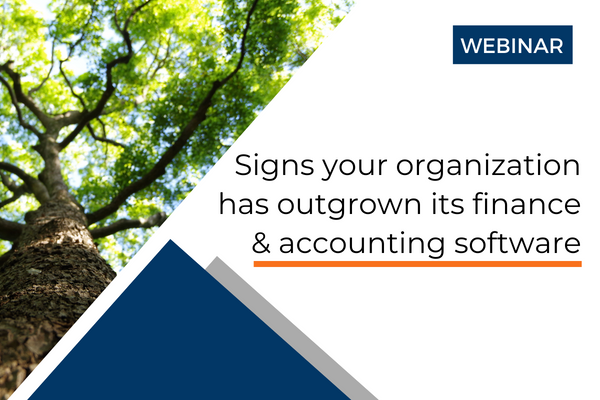According to a survey by Sage Intacct, over one-third of financial executives are actively searching for finance and accounting software alternatives. Whether you are on QuickBooks, or Zero, you may be experiencing some limitations of the finance & accounting software you implemented early on in your startup days. But when is the right time to migrate to a new, more advanced solution?
Watch this on-demand webinar where our presenters identify the major signs an organization has outgrown its current finance and accounting software. They will provide suggestions on what alternatives your peers are using. We will also be speaking with a finance leader who has recently moved off QuickBooks, and why.
If you would like to discuss your unique circumstance and how to accelerate your finance function, connect with us here.

